SUMMARY
This is AI generated summarization, which may have errors. For context, always refer to the full article.
![[Newsstand] Ping Lacson’s premature endgame](https://www.rappler.com/tachyon/2022/04/Ping-Lacson-Endgame.jpg)
The first time Senator Ping Lacson ran for president, in 2004, he won over 10% of the vote. In the last two Pulse Asia surveys, the latest of which was released on April 6, he is polling at 2%.
This is not a surprise, because Philippine history teaches an unforgiving lesson: Either you make it to the presidency on your first try, or you never make it at all. The corollary to this history lesson is even more bleak: If you lose in your first attempt, you will fare worse in your next.
In 1992, Miriam Defensor Santiago earned 4.4 million votes, placing a close second to Fidel Ramos; in 1998, she got less than 800,000 votes. In 1998, Raul Roco won 3.7 million votes and landed a distant third, in an election Joseph Estrada won by a landslide; in 2004, his total dropped to a little over 2 million. In 2004, when Gloria Arroyo won, Eddie Villanueva garnered a little under 2 million votes, ending fifth and last; in 2010, he won 1.1 million votes.
If history is any guide, then, Lacson will get substantially fewer votes in 2022 than the 3.5 million he received in 2004. His best survey result in 2004 was in the first half of March, a month after the official campaign started; 12% of voters said they would vote for him. His best in the 2022 election cycle is exactly half that, at 6%.
Lacson is headed for certain defeat. Despite having learned an important lesson from his 2004 run, which is to campaign this time with a vice presidential running mate, his candidacy has failed to capture the public’s imagination, to establish himself as the alternative, or to offer a compelling rationale for rewriting history.
Surprising runs
In different ways, his two presidential runs have been surprising.
He was only a rookie senator in the middle of his first term when he ran for president in 2004; he had placed only 10th in 2001, in a Senate election which saw more popular politicians identified with disgraced president Joseph Estrada like Santiago and Juan Ponce Enrile lose. There was no draft, no clamor for him to run. His presidential candidacy divided the Laban ng Demokratikong Pilipino party into two wings; in the view of some, he cost the other LDP candidate, movie actor Fernando Poe Jr., the election.
In 2022, Lacson could have easily run for a fourth term as senator. He was polling very well as a potential reelectionist; instead, he chose to run a second time for president, with the popular Senate President Tito Sotto as his vice president. After years serving as a pivotal member of the administration majority in the Senate, he entered into talks with other prospective presidential candidates, even those aligned formally or temporarily with the opposition, to try to choose a common candidate.
But his approach to negotiation was a surprise: He suggested that the candidates use the surveys as the benchmark, with the others giving way to the highest polling candidate at a given point in time. No one agreed with him, for exactly the same reason he disdains any talk of withdrawal today; he said it wasn’t principled.
But politics is addition, and subtraction is merely addition’s inverse. When his numbers started dropping, he received feelers about subtracting himself from the presidential race. By his own account, he did not only reject the feelers; he felt insulted by them. This was merely an application of his own suggested formula, but advanced much earlier than he must have anticipated. Apparently – and allow me to draw out the implication here – he thought survey-based withdrawals were principled if others did the withdrawing, but insulting if he was the one asked to withdraw.
Instead of adjusting his campaign strategy, however, by heeding the advice of some of his allies to immerse himself in crowds or by taking direct aim at front-runner Ferdinand Marcos Jr., Lacson decided to attack the second placer, Vice President Leni Robredo. This will be his legacy as a presidential candidate: the policeman-turned-politician who did not know who the real enemy was.
Continuity, not change
Since last year, in briefings I was invited to present, I classified the likely presidential candidates into three Cs: continuity (e.g., Sara Duterte and Marcos Jr.), change (Leni Robredo, Leody de Guzman, possibly Manny Pacquiao or Moreno), and career (Marcos Jr., Moreno, Pacquiao – definitely all three).
By continuity or change, I merely meant the possibility of continuing or reversing President Rodrigo Duterte’s policies. And by career candidates, I meant those politicians who perceived that 2022 was their best chance (quite literally, now or never) at the presidency.
I classified Lacson as a question mark under both change and career. I believe that Lacson has the kind of national reputation that would guarantee him perpetual election to the Senate; he needn’t run for the presidency to remain centrally relevant or retain political power. But he is turning 74 in June; perhaps he thought this year was his last remaining chance. I also thought that he had pivoted away from the worst legacies of the Duterte administration whose legislative agenda he had played a crucial role in. He had developed a deserved reputation as a legislator who can work with all political blocs; together with his initial pronouncements, I thought he may be classifiable as a change candidate. (But, again, I placed a question mark beside his name.)
In time, I was disabused of this reading; it became inescapably clear to me on April 3, at the presidential debate, when he positioned himself as a defender of the current political system, that he was in fact a continuity candidate.
This explains his strained, ultimately untenable relationship with the opposition; it made sense to him to think of them as functional partners in the system he had mastered – but not as disruptors of that system. That he could not abide.
But he isn’t merely a continuity candidate; he is very much the establishment candidate. While he enjoyed a reputation in the police force as a maverick, he was never the kind of insider-outsider that the Dutertes, both father and daughter, could credibly position themselves as being. This explains why he cannot understand the level of support Marcos Jr. enjoys. (It is also the reason why he cannot understand the Robredo campaign as a genuine movement, or the fact that it represents both the opposition and a constituency greater than those opposed to President Duterte.)
It isn’t only his character as “Ping Blockson,” the politician who blocks followers at the merest hint of criticism, although I am certain this plays a role, in the sense that he chooses to isolate himself from the rest of social media. It is also the lack of groundedness (the remark from Robredo which possibly hurts and haunts him the most). He is very much plugged in into the political class, where this self-described soldier is a prominent overachiever; but that class, that system and establishment he embodies, is only a small part of the nation he seeks to lead. – Rappler.com
Veteran journalist John Nery is a columnist and editorial consultant of Rappler.
Add a comment
How does this make you feel?
![[WATCH] In The Public Square with John Nery: Preloaded elections?](https://www.rappler.com/tachyon/2023/04/In-the-Public-Square-LS-SQ.jpg?resize=257%2C257&crop=414px%2C0px%2C1080px%2C1080px)
![[Newspoint] 19 million reasons](https://www.rappler.com/tachyon/2022/12/Newspoint-19-million-reasons-December-31-2022.jpg?resize=257%2C257&crop=181px%2C0px%2C900px%2C900px)

![[OPINION] The long revolution: Voices from the ground](https://www.rappler.com/tachyon/2022/06/Long-revolution-June-30-2022.jpg?resize=257%2C257&crop=239px%2C0px%2C720px%2C720px)
![[OPINION] I was called a ‘terrorist supporter’ while observing the Philippine elections](https://www.rappler.com/tachyon/2022/06/RT-poster-blurred.jpeg?resize=257%2C257&crop_strategy=attention)
![[Newspoint] Improbable vote](https://www.rappler.com/tachyon/2023/03/Newspoint-improbable-vote-March-24-2023.jpg?resize=257%2C257&crop=339px%2C0px%2C720px%2C720px)
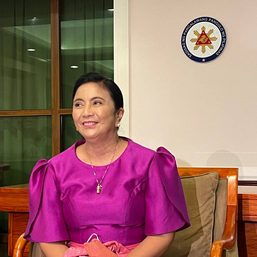


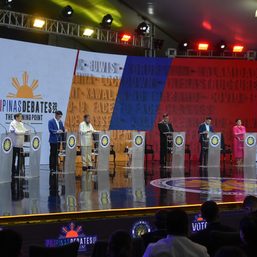
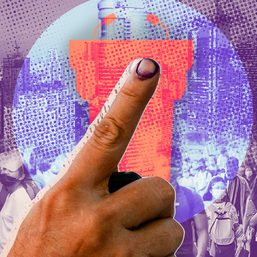
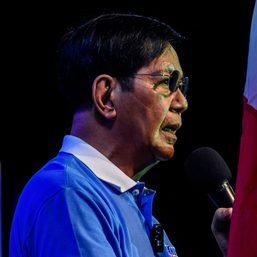
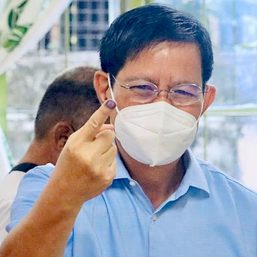
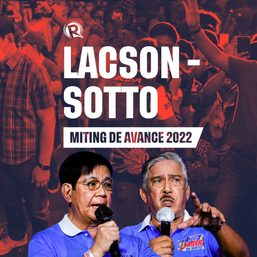
There are no comments yet. Add your comment to start the conversation.